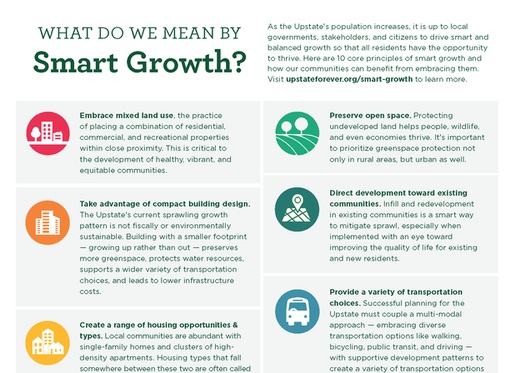|
I seldom make recommendations to friends and colleagues, but sometimes it is necessary to share an exceptional book, article, or video. Not long ago I “attended” the live, online presentation by Dr. Tom Fleischner, founding director (now retired) of the Natural History Institute based in Prescott, Arizona. I’ve recently become immersed in the institute’s programs and mission, and highly recommend that you too investigate its resources, including its online programs. The 50-minute PRESENTATION by Tom Fleischner is in essence a summation of his life’s work to bring the “study” of natural history back to the attention of a larger portion of the public, because this “oldest continuous human endeavor” is, frankly, at its lowest point ever in the realm of human attention. Please watch/listen to this presentation on the importance of natural history (including the concluding Q & A dialogue). Natural history—a verb, not a noun—is the practice of falling in love with the natural world. It is about paying attention. Natural history integrates science, art, and the humanities (e.g., literature and storytelling). “We need to love this world! Loving the natural world matters,” says Fleischner. Natural history forms a basis for moral behavior. Quoting Aldo Leopold and his simple definition of a Land Ethic: “A thing is right when it tends to preserve the integrity, stability, and beauty of the biotic community. It is wrong when it tends otherwise. . . . We can be ethical only in relation to something we can see, feel, understand, or otherwise have faith in.” Through attention to and immersion in nature, we develop kinship and a reciprocal relationship with the more-than-human world. Thus, the practice of natural history might promote healing for both ourselves and the world. Please listen and be moved by this lecture. Pass it on, and most important: let’s work to move others to discover or rediscover natural history. —Chuck Roe, President, Southern Conservation Partners
0 Comments
We highly recommend watching this eight-minute video. Grasslands are a surprising part of the North Carolina Piedmont’s (and much of the Southeast's) ecological history. Learn how planting native grassland species in our yards and other open areas mimics historical landscapes while improving the soil and fighting our changing climate. This story is part of the Pulitzer Center’s Connected Coastlines reporting initiative and was produced by PBS-NC.  On September 6-8, 2022, Southern Conservation Partners teamed with the North Carolina Natural Heritage Program, North Carolina Botanical Garden, The Nature Conservancy, and others to co-sponsor a three-day forum on the Future of Conservation that brought together over 140 participants and key experts on biodiversity, changing climate resilience planning, environmental justice and inclusion from all over North Carolina for dialogue and to develop strategies to better understand and protect imperiled species and ecosystems. (View the PROGRAM here.) Below download slides from the introductory plenary presentation, titled Diversity, Resilience, Learning, Place, and Conservation, by Dr. Alan Weakley, University of North Carolina Herbarium Director.
 The first four months of President Biden’s administration have presented a watershed change in priorities, promising renewed emphasis on environmental protection, natural resources and land conservation, and mitigation of climate change consequences. We greet this news with renewed hope, even as evidence of the catastrophic consequences of climate change continues to mount. The Washington Post is keeping a TALLY of the administration’s environmental actions. In four months, President Biden has begun to transform the nation’s energy and environmental landscape, according to the Washington Post’s analysis, by overturning 34 of former president Donald Trump’s policies and finalizing 21 of his own, as of this writing. From pausing new oil and gas leasing on public lands and waters to rejoining the Paris climate agreement, Biden has elevated the issue of climate change across the U.S. government and signaled a shift away from fossil fuels. In April he pledged that the United States would cut its greenhouse gas emissions between 50 and 52 percent by the end of the decade compared with 2005 levels—a commitment that will trigger major changes in the ways Americans live, work, and travel. “I talked to the experts, and I see the potential for a more prosperous and equitable future. The signs are unmistakable. The science is undeniable,” Biden declared at the virtual climate summit he convened on Earth Day. “The United States isn’t waiting. We are resolving to take action.” <continued . . .>  Photo by Tom Earnhardt Photo by Tom Earnhardt Southern communities can’t afford to be an after-thought when it comes to federal policy. The South is experiencing more climate impacts than any other region of the US. Rural, Southern communities are facing disproportionate impacts due to logging and wood production. Our region is also home to five of the top 10 carbon emitters in the country and is experiencing forest destruction from industrial logging at four times the rate of South American rainforests. Our survival depends on immediate and inclusive solutions. The "Southern Communities for a Green New Deal" (SC4GND) policy platform builds on the Green New Deal to center frontline communities in the South. The Dogwood Alliance worked with community leaders and other organizations to develop the forest policy part of the policy platform. The vision we created calls for:
It’s time for a new vision for the southern economy. We need a just transition to clean, renewable energy. We need to invest in a regenerative economy rooted in justice and equity. We need to work together for a healthy, strong, and resilient future. Please learn about the SC4GND policy platform: READ MORE. --Danna Smith, founder of the Dogwood Alliance
 Human population continues to surge across much of the southern United States, with resulting conversion of rural landscapes and environmentally sensitive areas to more urban and industrial uses. As human population grows and more urban/suburban development occurs, we should be embracing wiser and more environmentally balanced alternatives for use of land resources and community development. Upstate Forever, a multifaceted environmental and community conservation organization based in Greenville, South Carolina, has articulated Ten Principles of Smart Growth. READ MORE or click on image. |
When we see land as a community to which we belong, we may begin to use it with love and respect.... Conservation, viewed in its entirety, is the slow and laborious unfolding of a new relationship between people and land." There is in fact no distinction between the fate of the land and the fate of the people. When one is abused, the other suffers. From the PresidentSCP President Chuck Roe looked at land conservation along the route of John Muir's "Southern Trek." About ViewpointThis blog offers views of our Board and partners. We invite your viewpoint on the following questions: Archives
April 2024
Categories
All
|
||||||||

 RSS Feed
RSS Feed